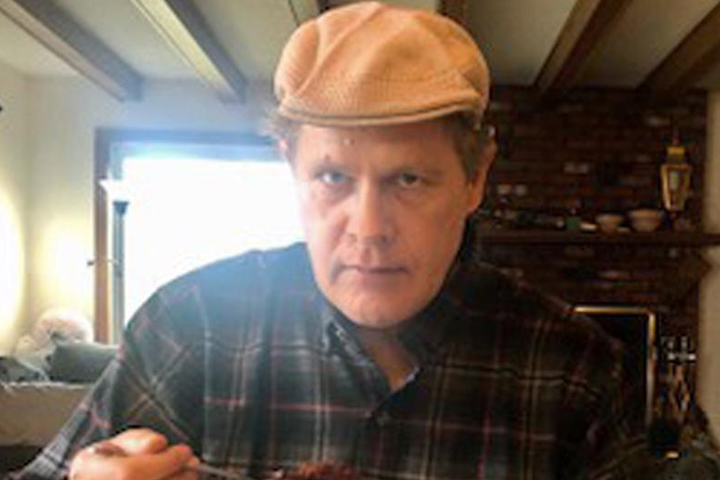Joshua Spriestersbach spent two years living a nightmare at a mental hospital in Hawaii, where he was pumped full of drugs and ignored every time he tried to tell the doctors the truth: that they’d locked up the wrong man.

Spriestersbach had somehow been mistaken for Thomas Castleberry, a man wanted on a warrant in Hawaii for violating his probation in a 2006 drug case. He was arrested in 2017 and locked up at the Hawaii State Hospital, where he repeatedly tried and failed to convince anyone — including his own public defenders — that he was innocent.
One psychiatrist eventually looked into his claims and found that they were true, but that was not the end of the story for Spriestersbach. Instead, Hawaii officials allegedly tried to cover up their mistake and quietly released him without a dollar to his name — and without correcting the record on his arrest.
The Hawaii Innocence Project is now trying to set the matter straight, with a petition filed on Monday to vacate Spriestersbach’s arrest and correct his criminal record.
The filing lays out how Spriestersbach was first arrested in 2017, after a police officer mistook him for Castleberry on the streets of Honolulu.
Spriestersbach, who is homeless, had been waiting in line for food outside a shelter when he fell asleep in the hot sun, according to the Hawaii Innocence Project. The officer woke him up and arrested him on the spot.
Spriestersbach assumed he was being arrested for violating a law against sitting or laying on the sidewalk. But he was wrong.
It’s unclear how the mix-up occurred, but Spriestersbach was somehow deemed to be one of Castleberry’s aliases, and authorities proceeded as though that were true. The Hawaii Innocence Project argues that the police likely did not check photos or fingerprints to confirm their suspicions, because doing so would have quickly shown that Spriestersbach and Castleberry were two different men.

Get breaking National news
“Instead of taking five minutes to just get the photograph, or Google the real Castleberry, they would have found out that the real Thomas Castleberry’s been locked up in Alaska since 2015. He’s still in prison now,” Hawaii Innocence Project co-founder Ken Lawson told KITV.
“The more Mr. Spriestersbach vocalized his innocence by asserting that he is not Mr. Castleberry, the more he was declared delusional and psychotic by the H.S.H. staff and doctors and heavily medicated,” the petition said.
“It was understandable that Mr. Spriestersbach was in an agitated state when he was being wrongfully incarcerated for Mr. Castleberry’s crime and despite his continual denial of being Mr. Castleberry and providing all of his relevant identification and places where he was located during Mr. Castleberry’s court appearances, no one would believe him or take any meaningful steps to verify his identity and determine that Mr. Spriestersbach was telling the truth — he was not Mr. Castleberry.”
The petition credits a lone psychiatrist at the hospital with figuring out the mistake, though it came two years and eight months after his arrest. The psychiatrist listened to Spriestersbach’s claims, then made a few phone calls and checked the internet to confirm his story.
Ultimately, the psychiatrist found that there was no way Castleberry could be at the hospital in Hawaii, because he’d been locked up in an Alaskan prison since 2016.
Hospital staff confirmed the mistake through fingerprints and photos, then moved to release Spriestersbach in January 2020, the petition said.
“A secret meeting was held with all of the parties, except Mr. Spriestersbach, present. There is no court record of this meeting or no public court record of this meeting. No entry or order reflects this miscarriage of justice that occurred or a finding that Mr. Spriestersbach is not Thomas Castleberry,” the court document said.
Police, the state public defender’s office, the state attorney general and the hospital “share in the blame for this gross miscarriage of justice,” the petition said.
“I think that they were hoping because he struggles with mental health disabilities, because he’s houseless, no one would believe his story,” Lawson said.
Castleberry’s public defender in Alaska declined to comment to the Associated Press. Hawaii Public Defender James Tabe, Gary Yamashiroya, special assistant to the attorney general and Matt Dvonch, a spokesman for the Honolulu prosecuting attorney’s office, also declined to comment.
Spriestersbach, now 50, is currently staying with his sister in Vermont, where he is living in fear that he will be dragged back to the hospital. He reportedly will not leave the property.
“He’s so afraid that they’re going to take him again,” his sister, Vedanta Griffith, told the AP.
Griffith says she spent nearly 16 years caring for her brother, but he disappeared in 2003 after he moved with her and her husband to Oahu. She said he was suffering mental health issues at the time.
“Part of what they used against him was his own argument: ‘I’m not Thomas Castleberry. I didn’t commit these crimes. … This isn’t me,'” she told the Associated Press. “So they used that as saying he was delusional, as justification for keeping him.”
She added that she only learned about his ordeal after his release, when a homeless shelter reached out on his behalf.
“And then when light is shown on it, what do they do? They don’t even put it on the record. They don’t make it part of the case,” Griffith said. “And then they don’t come to him and say, ‘We are so sorry’ or, how about even ‘Gee, this wasn’t you. You were right all along.'”
—With files from the Associated Press








Comments